Every so often whilst flying out here in Papua, something amazing happens. Usually it’s when I get to visit new airstrips and go exploring the village or fly into somewhere that’s not seen an aircraft for months or even years. The excitement and gratitude of the local people is one of the great privileges of flying out here. However last week I met a man called John Cutts, at an airstrip called Pogapa, who quite simply blew my mind.
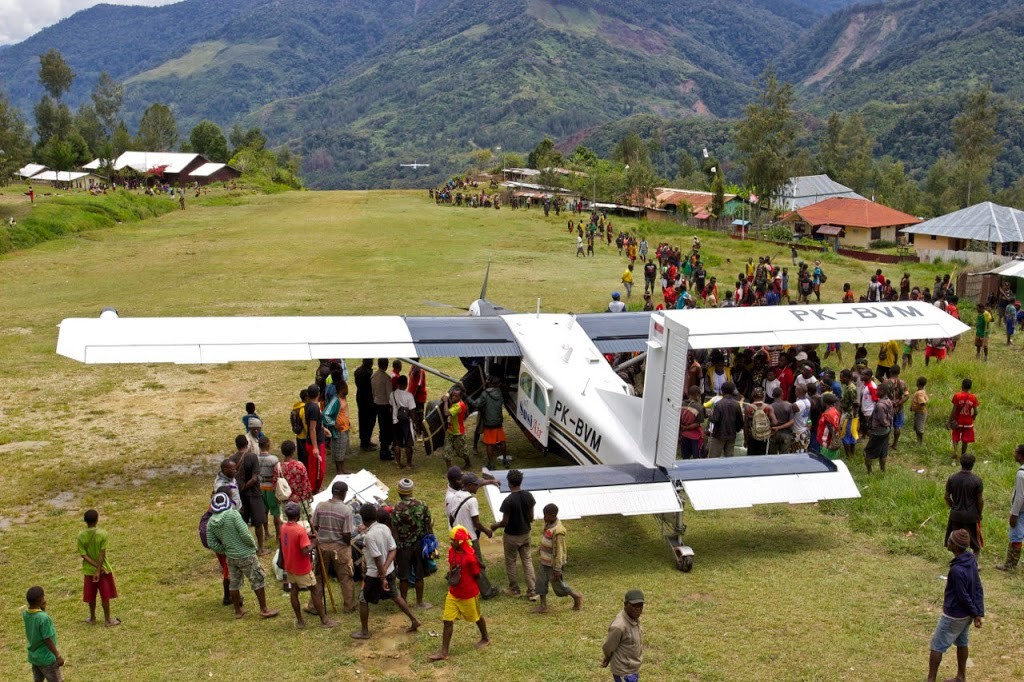
Now I’d heard of John before and even seen him featured in the odd book or two but to actually meet him for the first time was something truly amazing. John is a second generation missionary who, from the age of two years old, has lived with the Moni tribes of Papua. Think about that for a moment. His first language was Moni and his first memorable experiences of this world was growing up as a boy in a remote tribe of the Papuan highlands.
Although John now spends time away from the tribe on travels abroad, he’s fully integrated and accepted by the Moni people of Pogapa and has the most amazing log cabin there which he built himself from scratch over a few months from locally sources materials. I always thought I live an interesting life but John’s is simply remarkable! You can read about his life and work further, on his website here: Village Heartbeat.
One really great thing about meeting John was that he could finally explain to me pretty much anything I wanted to know about the local Moni people. The silly thing is as a pilot out here, my time on the ground is limited to a few minutes offloading cargo, putting seats in and filling the aircraft back up with people who want to get out of a particular village. My interaction with the locals is very limited and tends to be mainly related to the flying. I do occasionally get to go exploring a local village but even then, my Indonesian is ok but not quite enough to fully understand everything. And of course Indonesian is also the second language of any tribes-person I chat with too, compounding the language barrier!
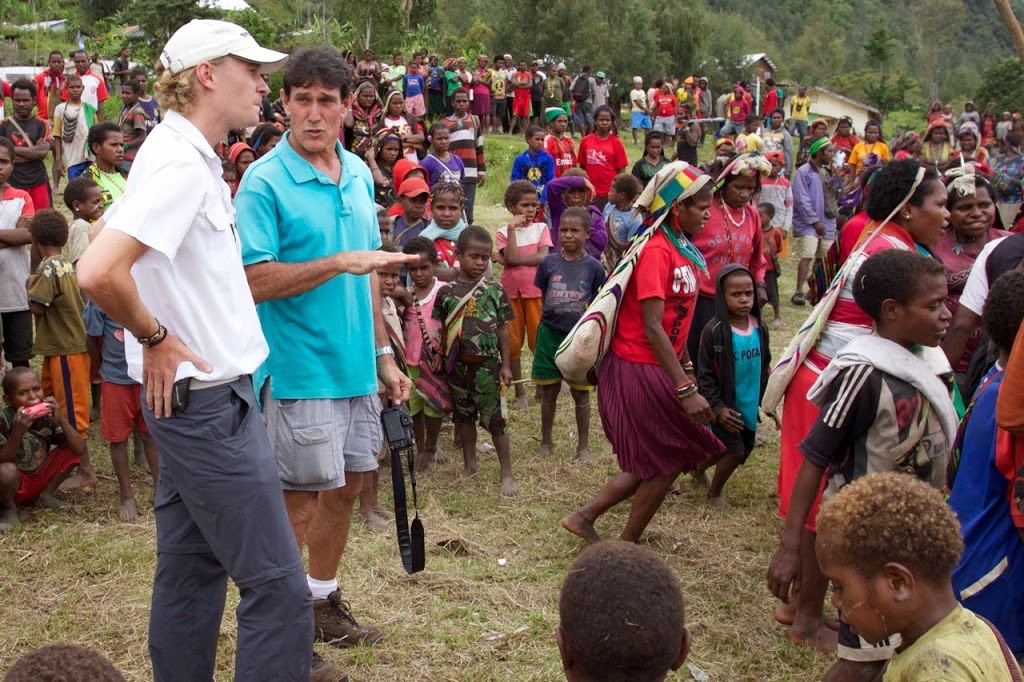
So, what did I learn? Well, firstly John explained why a certain group of people were all dancing together and chanting, whilst most of the others simply watched. The Moni people are spread out over hundreds of villages and when one village visits another, it’s normal to introduce yourselves by way of a dance. In this particular instance, they were also showing their support for a particular political party as the national elections were taking place.
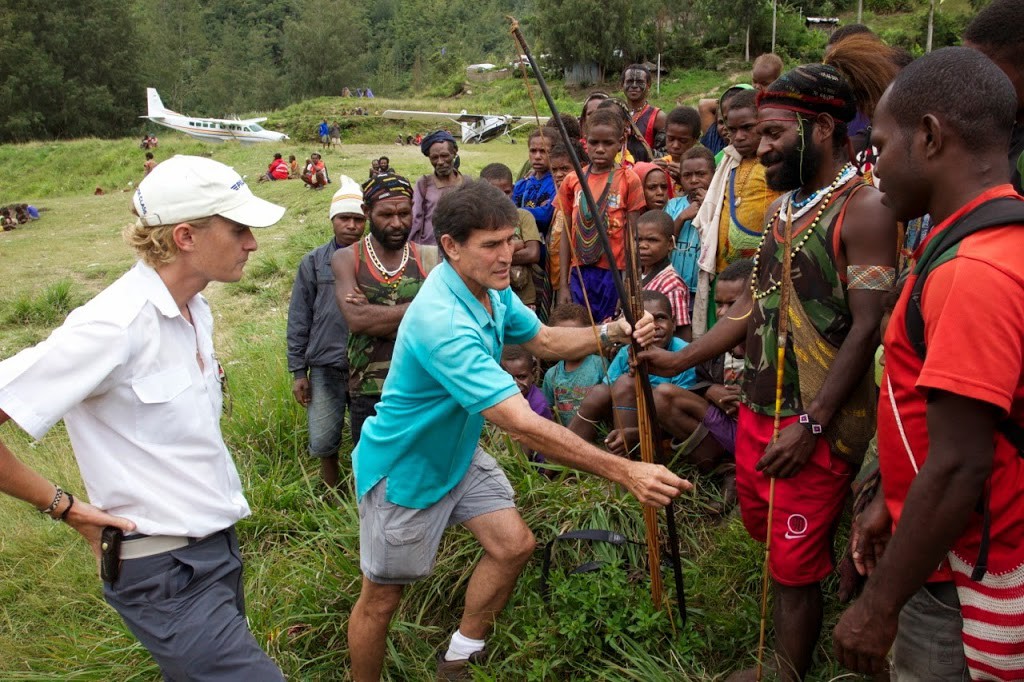
Next up I learnt about the bows and arrows I see all over the place here in Papua. Most men tend to carry them just in-case of any disagreements or in-case another group decides to start a war with their village. The very best bows are made from a wood sourced in the southern flatlands of Papua which is a ten day hike from Pogapa, one way! There are four main types of arrows depending on what is to be shot; pigs, humans, birds and marsupials. The pig and human ones are fairly similar with a single sharp point. The bird ones tend to have multiple points on them to increase the chances of hitting a small bird (kind of like using a shotgun I guess) and the marsupial arrows are barbed to prevent them being pulled out.
All fascinating stuff and the chap John had chosen to chat to us with about bows and arrows, Ham, even gave us a demonstration of the accuracy. He managed to hit a small cardboard box from about 50m or so away. Impressive stuff!
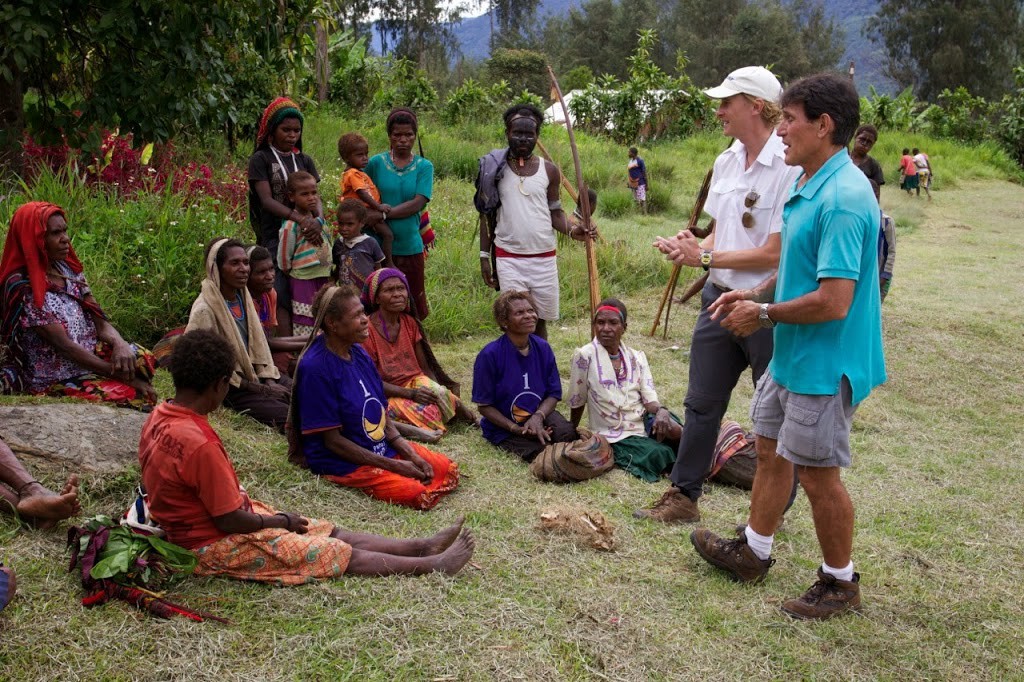
As time was running out there was only time to learn about one final thing. I’d noticed, on occasion, that some local Moni people had the odd finger missing. It turns out this is a pretty brutal tradition whereby if someone looses a very close family member, they remove a digit below the second knuckle. It’s done mainly by women and only for very close family such as a parent or child.
They’ve even been known to wear the finger as a necklace for a time afterwards as a reminder of the pain they’ve suffered. The other custom is to remove the finger, dig a hole in the ground and let the blood pour out from the stump into the hole until it stops before burying it. All very brutal but thankfully this is a disappearing tradition thanks to the missionaries teaching them that the pain of death can be eased through faith.
I very much enjoyed my afternoon with John and hope to see him again some time soon to learn even more about the amazing people I serve by flying around the mountains out here. It’s made me even more keen to find out more about these people who really are the last frontier of human civilisation.
Discover more from Matt Dearden
Subscribe to get the latest posts sent to your email.
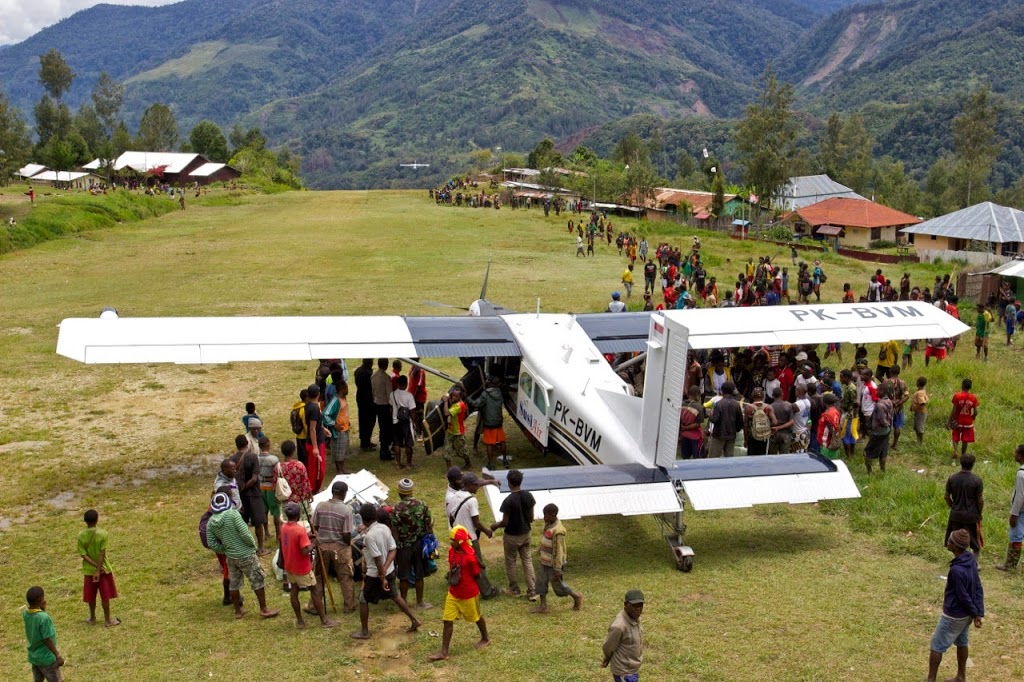
What a wonderful experience for you my Son, fascinating! The best thing is you’ll be exchanging that life for a more mundane one here in Axbridge this week!
wow amazing story ……………
Wow:) my dream is to come to Indonesia:) how much flying experience do I need to join susi air?
Hello Callum,
I have no idea what our current requirements are, they seem to change daily. This site seems to be a good source of information: http://susiairinterview.blogspot.com
Matt, you probably would enjoy Jared Diamond’s last book.
Enjoyed this blog.
Thanks for the recommendation, looks interesting; will check it out!
Callum check the Susi Air site, or even if you look bit more around here you will find the answer. It is interesting to see how you young people (forgive me if I am wrong) expect everything to be served out for you. Some efford is apprecieted…
Matt thank you very much for interesting and inspiring stories. It is pleasure to read them. I have been following your blog for a bit more than half a year and I am always looking forward to read another story, another adventure.
Keep up your good work and if you have time for a drink when you are in Jakarta please feel free to give me a call if you please. I am based out of Halim on old f27…
Take care and be safe.
Regards
Sasha
081210005306
Hi Sasha,
Thanks for your kind comments on my blog. Got to love those old Fokkers, not many of them left there days! I’m in UK at the moment on holiday but will give you a shout when I next pass through Jakarta.
Cheers
Hi Matt,
Looking forward. Any time, I live near Tebet Green, 10 min from Halim. So if you have a time when passing by give me a shout.
Take care
Matt, this so interesting read! I can’t even imagine how it must be for one’s mind to shuffle every day with a modern aircraft between civilisation and native villages in the remote areas!
it’s just very awesome that I can’t even tell a word..
JOHN or in our language(ZANI MALA) is West Papuan hero.
GOD bless him
Just watching you meet John on TV and googled for a bit more info about him and the Moni people. Fascinating stuff. Glad you got to take a film crew with you. Next time you visit ask about the white pig ceremonies.
I will ask John about that next time I see him. Cheers!
I just found your show on Youtube. This episode was really interesting. Glad I found that you blogged about it. Thanks! It would be really neat if someone did a show about John and his work there.
Thanks! It certainly would be cool if someone made a documentary about John, he’s a really interesting chap with some amazing stories to tell.